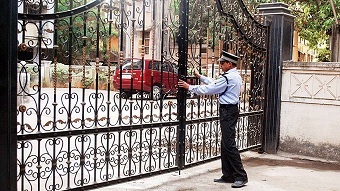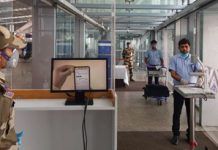The sloppy security guard at your home or office may soon make way for a well-trained professional. The state government will crack its whip on private security agencies, through a stronger regulatory mechanism to monitor the training of their staff to ensure that they act as a first-line of defence during unforeseen incidents.
Despite the rising demand for security personnel, a highly unorganized market, fly-by-night operators and lack of training and background checks leads to poor quality service. A senior home department official said that they would regulate private security agencies by making background checks, setting standards for minimum physical fitness and education and providing training in soft-skills, first-aid, crisis response and fire-fighting. The proposed regulations to oversee private security training agencies will setup a mechanism to monitor their training and make it mandatory for candidates to undergo police verification.
Officials admit that while Maharashtra has around 140 private security training institutions and an equal number of agencies on paper, the proliferation of unregistered agencies is huge with many guards being given just a uniform and sent for duty. “The responsibility of regulating training institutions of private security guards is with the Commandant General of Home Guards. We are looking at options in terms of regulating this training and ensuring it is up to the mark. This will help security guards handle unforeseen events apart from merely opening gates,” said a home department official.
“The training given to security guards should be monitored and certified. This can be done by a committee of police and home guard officials or a third-party,” said another official.
The training will be for a minimum of 100 hours of classroom instructions and 60 hours of field training spread over at least 20 days with concessions for ex-servicemen and police personnel. Refresher courses will be compulsory every three years.
The training will cover public conduct, physical security of human and physical assets, fire-fighting, identification of improvised explosive devices and identification papers, handling firearms, using devices like security alarms and basic legal knowledge. “We are looking at separating the licenses given for training the security guards and their deployment. Now, private security agencies claim to run their own training institutions, which is a conflict of interest. The two consents will be separated. Moreover, many training institutions exist only on paper,” he added.








